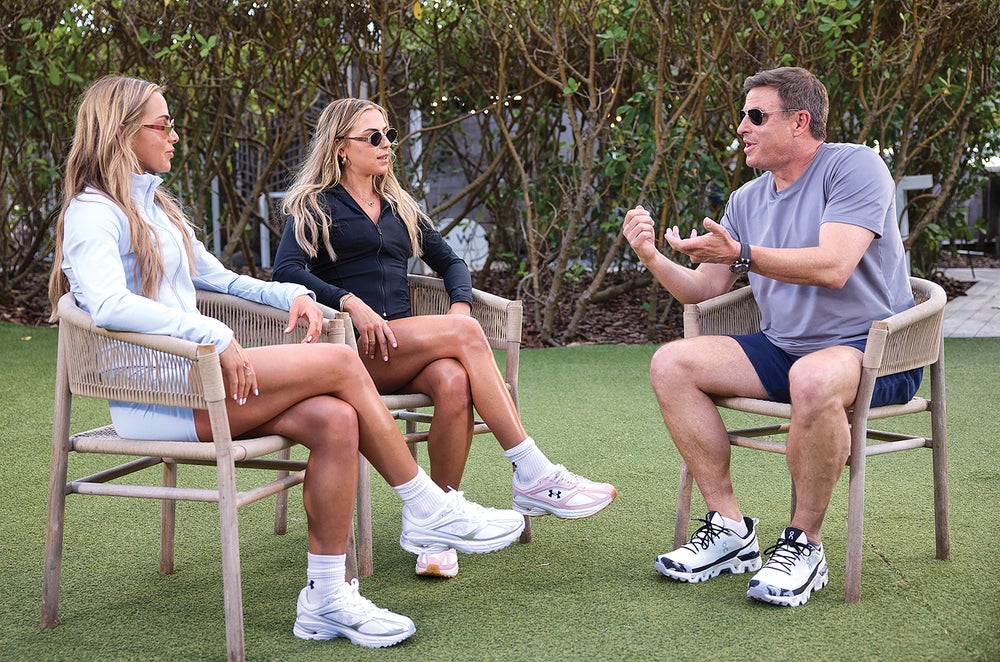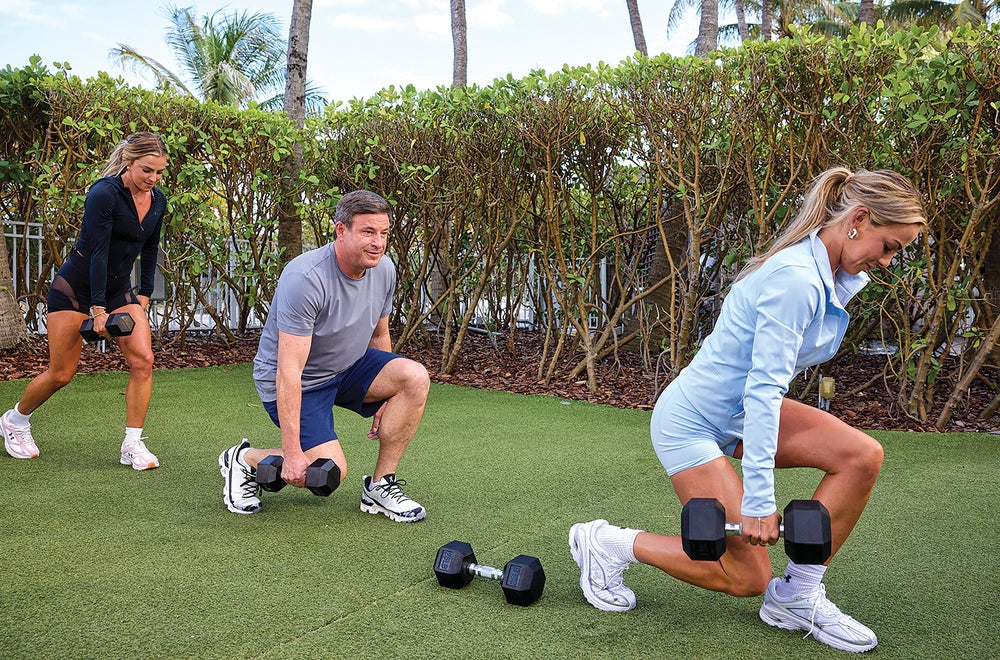When Ken opened a new restaurant in Miami, he helped him local influence. It included the city’s two business names – Hannah and Hailey Kinder, the twin children who rose to fame playing basketball for the Miami Hurricane, and promoted the Toygater Fitness and Histal Beauty brand for athletes.
Recently, we asked the twins what businessman would they like to talk to. He would go around in the same chicken restaurant – and said that he would love to raise the todded graves, the founder of the cans. They saw his business from outside, but he wanted to understand it from inside. And the graves, which believe that the partners are the key to success, were eager to meet and learn.
So we brought all three of them to talk. As a result, they developed a game plan for business and sports development.
This conversation was part of a new series we call Playbook, with which partnerships have been developed Sports Alastiat. We associate with businessmen with businessmen for a career -spread conversation. Here is an edited version of their conversation. You can watch the full video here.
Related: 5 work ethical lessons businessmen can learn from elite players
Hailey Cendrans: When you started raising the stick, did people understand what you want to make?
Todded graves: I was rejected by every bank of the city, because at the time it was a strange concept: Only Chicken finger food. Other restaurants were adding more More items for sale. The only model I could think about was these-out burgers-which mainly sells Hamburgers-but anyone in Louisiana, where I started, had heard of it.
But I just believed in myself. I said, “If you can offer a permanent, more and more ‘viable’ meal, it will be a success.”
So I knew I had to take it into my hands. I worked in the oil refineries, I worked as a boiler maker, I worked in a commercial fishing in Alaska – all of this to make money for this business. The fishermen in Alaska can see me so hard for this chicken’s finger dream, and they will tell me, “You are going to make it.” It was my first encouraging group.

Image Credit: Courtesy Jeffrey A Salter | Sports Alastiat
Hailey: Once you are going, what was the hardest part?
Todd: When we started, we did not really know what we were doing. We were open seven days a week – and we are still. But at this time, the college students I have hired will not show to work. So I will call friends, call the family: “I need you to help you complete this shift.” I didn’t get much sleep. We were open every night until 3:30 pm
When we got out, it would be 5:30 pm, and then we had to return every morning at eight o’clock.
Hailey: Jesus.
Todd: Startup does not have the balance of life. You have to put 100 % in it. That is why I started the stick when I was your age. I opened at 24, and at that time I could dedicate everything. It was that drive, that passion. Look, I profit my first month $ 30, and I was very excited. Because it meant that I could pay my people, I could pay my shopkeepers, I could pay rent. Only when I knew it would be a success.
The next strict phase was two from a restaurant. I didn’t know how to make teams. The more I could give advice, I had more talk about learning through trials and mistakes. I was burned by people. I felt bad about it, don’t know what I am doing. Then I learned to take the most of the people and be able to coach and guide them where they became manager.
Now we have 75,000 staff members, and I have a platform to teach them. For most of them, raising cans is their first job. So I tell them: “Work hard. Have fun. Let’s supply quality products. Let us make our money.”
Related: Clever businessmen do not get out without seeing – Here’s how to approach a strategy to start a business
Hailey: Drane, you also make a good coach!
Hina Kendra: You played football, okay? I feel like it started with athlete mentality.
Todd: One hundred percent. I learned leadership through sports. For example, when someone does something wrong in a business, leaders can think of, Oh, I will talk to them about a couple of days. But the coaches don’t do that! They correct the course OK then.
Hailey: In this moment
Todd: And the culture is: Everyone always strives to get better. Mistakes do not mean that you are bad. We have a culture where it is okay to make mistakes – but we need to learn a lesson from them.
How has played basketball helping to start and enhance your business?
Hina: We learned consistency and discipline. Regardless of the heights and the bottom, you have to show every day.
Hailey: We also learned that a group of people have to benefit the most. When you have a common goal, it doesn’t matter what a past is, or where they come from. You just ask: How can we all perform it? Also, recognize that we all have different powers and weaknesses. Hannah and I also have this true, but we have a goal: To succeed. And you can’t make it fake. If you think your coach is just telling you things, you don’t want to show them. You need to think of people, I want to show it and do it because they really care about me.
Todd: This is true. The staff is happy. They are doing better. It affects the standard. It affects everything.
Hina: Also, we learned how to respond to things outside our control. It is like, “Well, the coach didn’t play me. I can’t control it. So what can I control and still get success?”
Related: Why every player should think like a founder of a startup

Image Credit: Courtesy Jeffrey A Salter | Sports Alastiat
Todd: You are a year before your time. I literally tried to overcome everything and make everything so perfect. The biggest lesson
I learned: Focus on development instead of perfection. For example, I will not release my first training manual because I kept thinking, I have to improve it. But people were like, “Hey, just do one version. Then work on it. “It was a good advice.
You have created a great community for your business. What is your secret sauce to bring people along?
Hailey: When we started our health and fitness business, we thought a lot about being a goal. And that purpose is to help young girls. This allows us to be happy and to be in a good mindset.
Hina: It also helps us in difficult times.
For example, we both had a food error – but we managed to make it positive for other people by making an app to help eating it better. It was like, “We’re going to impress a little girl, or someone who is struggling in life, and it’s a win in itself.”
Todd: This is the purpose.
Hailey: This is the spirit that keeps you.
Todd: Look, if you love your work, you will do it as long as you die. In business, people often value more money and wealth. That is why many great businessmen are sold soon. Then his company has been purchased by a private equity, and it has no equal values. You lose this particular founder contract.
People ask me, “Hey, what’s your end?” I am getting old and will die with this business, and the children will move forward and continue these values, and then hope their children, and we will continue to keep these values forever.
Hina: There is never an end.
Todd: I love it

